Toby Faber, ex-managing director of independent book publisher Faber & Faber, was in New Zealand in July-August to promote the new history of the company Faber & Faber: The Untold Story. He spoke to a quiet crowd of about 60 people at a WORD Christchurch event in Tūranga on the afternoon of Sunday 11 August, in an event supported by the Decorative and Fine Arts Societies of NZ, opens a new window.
Professor Paul Millar of the University of Canterbury gave some background and introduced Toby, describing Toby's surname as "the square-root of one of the most successful publishing houses in the world", which was met with polite laughter from the audience. Toby began his talk by admitting that corporate histories can be very boring, so in writing the book he'd tried to make it more interesting by using words from people actually involved in the company from the get-go in 1929. Delving into the company archives he had found many letters and records that had not previously been seen, and he read from these at many points during his talk, and later when interviewed by Paul.
Toby talked about how his grandfather, Geoffrey Faber, had started Faber and Gwyer in 1925, in partnership with Sir Maurice and Lady Gwyer, but that later the Gwyers stepped out of the business.
The name 'Faber & Faber' was chosen in 1929 for no other reason than "two Fabers sounds better than one" but there was only ever just one Faber.
Geoffrey Faber went on to hire a number of clever editors and spotters of writing talent, who met regularly to review and discuss manuscripts and ideas for books.
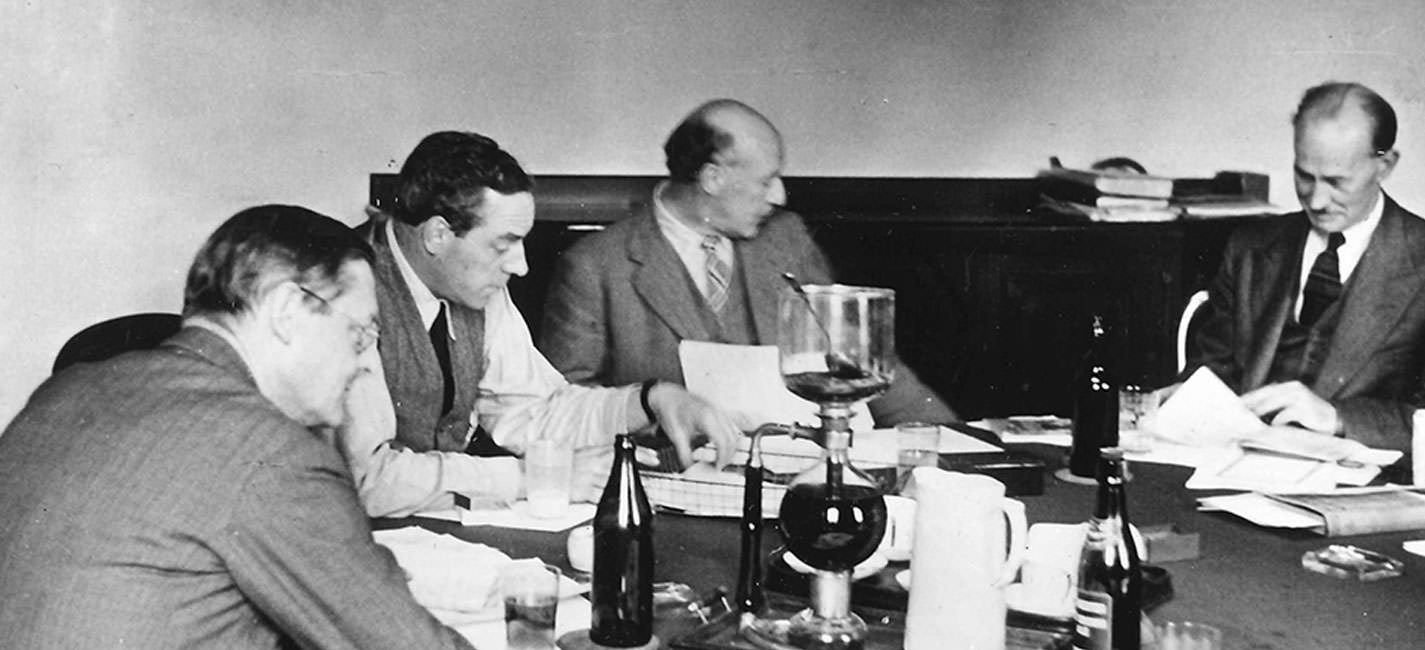
From then on a long list of famous names and well-known books from literature became associated with Faber & Faber. Many of the people involved in the business, including George Faber himself, came from the University of Oxford's All Souls College, opens a new window, a special part of Oxford that has no undergraduates, just fellows.
T. S. Eliot was an early addition to the business, helping to decide which books should be published and which turned away. Faber & Faber is famous for publishing now famous literary names but the story of the ones they let get away is just as interesting. They really wanted to publish Ulysses by James Joyce, but at the time they were warned the risk of being prosecuted for obscenity was very high, so they declined. They made up for it by later releasing Joyce's Finnegan's Wake instead. George Orwell's 1984 slipped by the wicket keeper at Faber, as did the many books about animals by Gerald Durrell. The children's story of a young bear found stranded at Paddington station was also missed.
Faber & Faber had a boom period during World War II. Paper was rationed, and demand for books was huge, so any books they did publish sold extremely well. But it didn't make the company any money, as the government had passed legislation that meant any business that made more profit than they did before the war had their extra profits taxed at 100%.
In 1953 Colin Monteith, another fellow of All Souls College, was brought in as an editor. He rescues the novel Lord of the Flies after it is rejected by another Faber reader, then later spots the play Waiting for Godot and goes on to publish many works by Ted Hughes, including his poetry and successful children's books like The Iron Man. Plays and poetry become a strength for Faber & Faber over the next few decades, as they publish work by many famous Western poets and playwrights. Toby quoted one wit who attested that Faber was "the firm that put the 'try' in 'poetry'", although to be fair Faber's success with poets and poetry over the years shows they know talent when they see it and do more than just 'try' to publish.
![]() A new logo was developed by Faber in the 1970s, and that has become their familiar icon ever since. In the Eighties, T. S. Eliot's poetry book Old Possum's Book of Practical Cats brought success and royalties to the firm when it was turned into the musical Cats by Andrew Lloyd Webber, doing incredibly well on both the West End and Broadway. Toby revealed that the royalties from Cats were well-used by Faber to grow the business further, helping it survive the economic ups and downs of the time. He said they have resisted numerous buy-out offers over recent years, and remain steadfastly independent. Toby maintains their success is due to his grandfather's insistence that the firm be editorially led, and that the owner's have a "light touch" on the firm.
A new logo was developed by Faber in the 1970s, and that has become their familiar icon ever since. In the Eighties, T. S. Eliot's poetry book Old Possum's Book of Practical Cats brought success and royalties to the firm when it was turned into the musical Cats by Andrew Lloyd Webber, doing incredibly well on both the West End and Broadway. Toby revealed that the royalties from Cats were well-used by Faber to grow the business further, helping it survive the economic ups and downs of the time. He said they have resisted numerous buy-out offers over recent years, and remain steadfastly independent. Toby maintains their success is due to his grandfather's insistence that the firm be editorially led, and that the owner's have a "light touch" on the firm.
When asked about the impact of digital publishing on the business, Toby declared that digital publishing has been entirely positive for Faber & Faber and that printed books had definitely "upped their game" due to the arrival of ebooks in the market.
Wonderful afternoon with Toby Faber talking about the history of Faber & Faber at Tūranga. Attentive, engaged audience armed with great questions. Thanks to the Decorative and Arts Societies of NZ for bringing him to us. pic.twitter.com/sMIEvveEKH
— WORD Christchurch (@WORDChCh) August 11, 2019


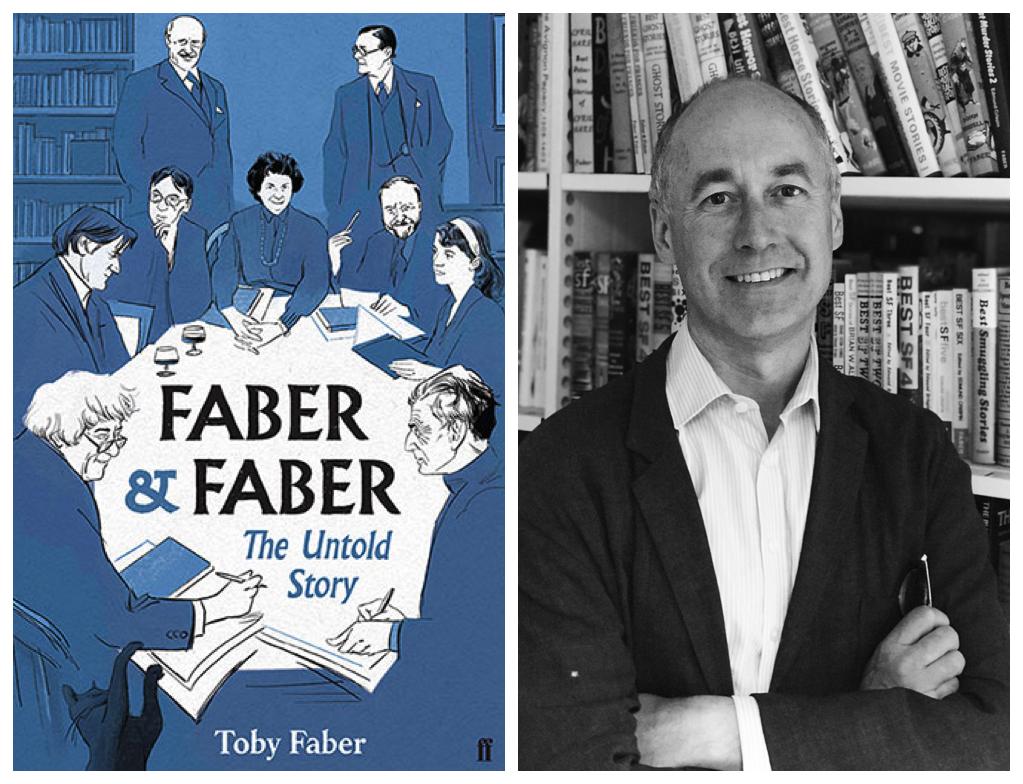
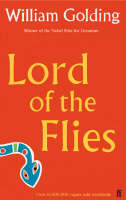
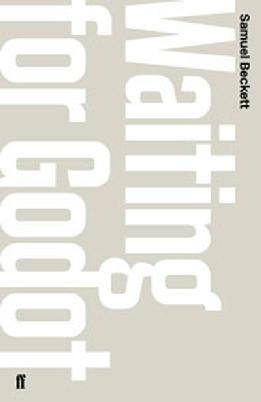
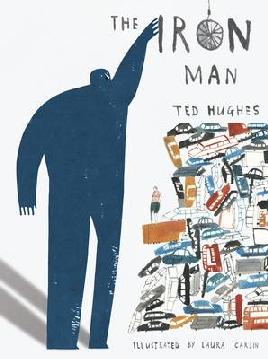
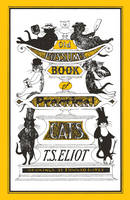

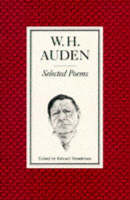


Add a comment to: Toby Faber – WORD Christchurch